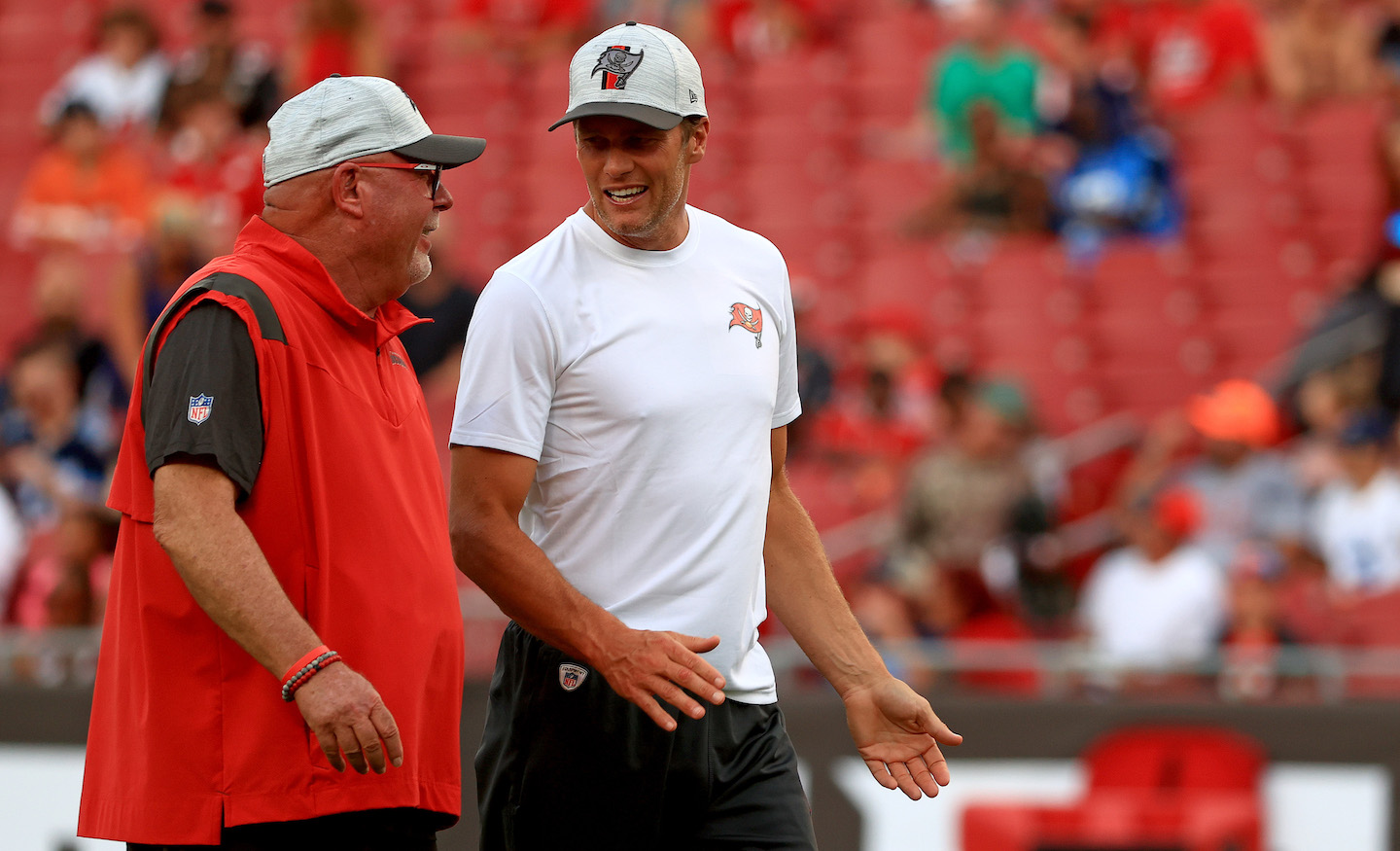The NFL season is upon us, and aside from vaccine drama, the biggest story and biggest change this season is an extra week of games. The NFL switched from 14 to 16 games in 1978, and this season will be the first year of a 17 game-schedule. We’ve already discussed that the new records will be hideous to look at, but what about the next most important issue? Will this longer season introduce load management to the NFL?
Sure, there was one fewer preseason game this year, but NFL guys don’t view that as a factor to offset the added game, because “regular-season reps are so much more competitive and stressful,” said one NFC executive. Most NFL staffs—and players—don’t see the shorter preseason as a true concession for the longer regular season, since the starters who will take the bulk of the reps were not playing full games in the preseason anyways.
A 17-game season with only one bye week means more injury risk before the playoffs or an offseason payday, and a little more cushion for coaches to strategize how to use their starters. I asked the same question to executives on four different teams. Will any NFL team sit fully healthy players this season just to give them rest?
Of the four executives, only one said told me they had explicitly discussed the possibility internally, and only in the capacity of pulling starters from games that are already decided, rather than sitting them out entire games. All four admitted the rest element will factor into the season, but that it wasn’t likely a team would rest any otherwise healthy starters for an entire game.
“It’s the million-dollar question,” said the NFC exec. “It will be very interesting from organization to organization. Do they sit them or do they try to take a series of snaps off per game to keep the season total consistent with past years?”
“Where it will come into play is when teams are up or down multiple scores in the fourth quarter,” said another NFC executive. “…If you are down 17 points with seven minutes to play, do you pull your guys to save them those snaps or do you try for the point-one-percent chance of winning the game? This year will be an interesting case study in win probability and analytics being applied to whether to leave players in or take them out.”
That executive theorized that it’s easier for a team on the losing end to pull some starters when the game is out of reach. They suggested that a winning team might decide to sub out the starters for a few series only, and use the No. 2 running back, fourth and fifth receiver, and third tight end for a few snaps.
Teams with capable backups will be better set up to take advantage of potential load management tactics. One executive who works for a rebuilding team said his team has not discussed resting starters in any situation. “Never by us, but maybe we aren’t good enough to have that luxury yet,” he told me.
If any team does decide to sit starters for an entire game, they've got more roster flexibility than ever before. The league kept the expanded practice squad and the modified IR rules from last season. Practice squads increased to 16 players, and there’s no limit to the number of players a team can bring back from injured reserve after they missed at least three games. Before 2020, a team could only bring back two total players from IR.
“You could see teams use the practice squad call-ups more judiciously to give banged-up guys more rest,” the second NFC exec said. “The guy who was 'questionable' and guts it out may now be held out of the game. The game theory now with only one bye week and seven playoff spots may open the window to greater flexibility, but I still don’t see wholesale resting of guys. You can do that in the preseason with 80–90 man rosters, you can’t do it in the regular season with a 48-man active roster that has to play offense, defense and special teams.”
So what might this actually look like in practice? It seems unlikely that we’ll see a healthy starter sit for a full game until a team has clinched or been eliminated, something that was already a regular NFL strategy. Seventeen games is still a short enough season that each contest has real meaning, and NFL coaches and executives aren’t ready to completely shift their thinking yet. “It’s much harder to justify sitting someone in the NFL with so many fewer games vs. the NBA or MLB,” said one AFC exec via text.
So there won’t be a Kawhi Leonard of the NFL, at least not yet, but the executives I spoke to agreed that analytics and sports performance staff will be more involved at the end of games to suggest pulling players for preservation. That is, under one very specific condition, the first NFC exec told me: “If Coach wanted it researched."
Some coaches haven't thought that far ahead:
“The only time that'd probably happen is with your record, maybe, and at the end of the year. You might see some of that. But I don’t necessarily – me, my belief – see that happening with us. But I gotta be careful because I’ve never been through this before, so I don’t know."
— Jason Lieser (@JasonLieser) July 29, 2021
Players have publicly complained about the consequences of a longer season. The smart, progressive teams will no doubt look into different ways to protect them this year, but we all know that’s not the majority of NFL teams.






